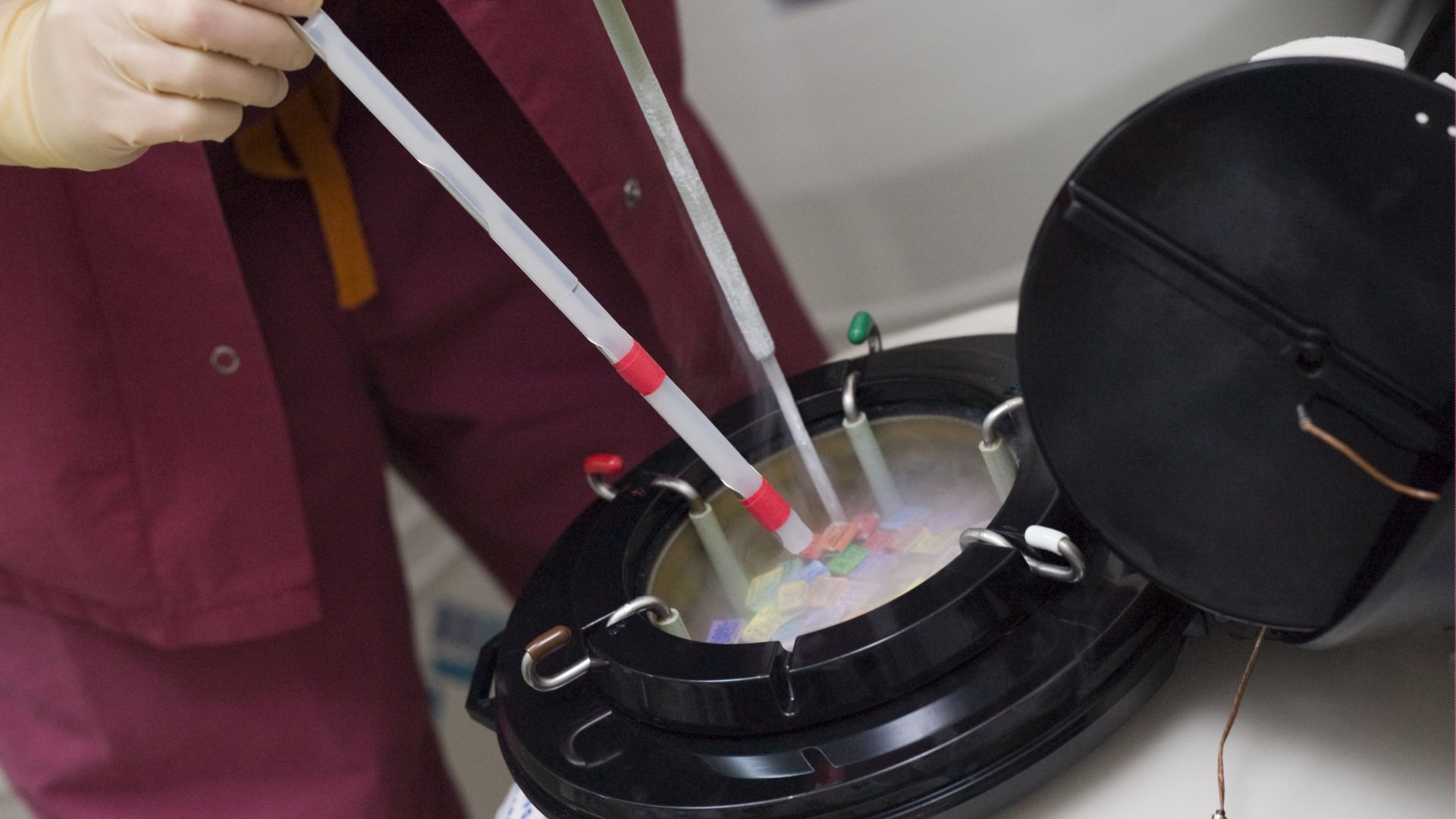
Many women in India today are prioritizing their careers and educational goals, leading to a trend of delayed childbearing.
This trend raises important questions about fertility preservation options: What advancements have been made in egg freezing technology?
How accessible are these services in India? What implications does egg freezing have for women’s reproductive choices and career planning?
In this comprehensive article, we’ll explore these questions and provide insights into the current landscape and future of egg freezing in India.
Key Takeaways
- Vitrification, a cutting-edge flash-freezing technique, has significantly improved the success rates of egg freezing.
- Egg freezing services are becoming more accessible in major Indian cities, with a growing number of fertility clinics offering this option.
- Egg freezing empowers Indian women to prioritize their careers and delay motherhood, while preserving their fertility options.
- Women facing medical treatments that could impact their fertility can benefit from egg freezing to preserve their chances of future pregnancy.
- Social egg freezing, where women choose to freeze their eggs for non-medical reasons, is a growing trend in India.
- While egg freezing offers promising possibilities, it’s important to consider factors like cost, success rates, and ethical implications.
Technical Advancements in Egg Freezing: A Boon for Fertility Preservation
Egg freezing technology has undergone significant improvements in recent years, making it a more reliable option for women seeking to preserve their fertility.
One of the most significant advancements is the introduction of vitrification.
Vitrification: The Game Changer in Egg Freezing
What is Vitrification?
Vitrification is an ultra-rapid freezing technique that avoids the formation of ice crystals, which can damage the delicate structure of eggs.
This process involves:
- Suspending the eggs in a special cryoprotectant solution
- Plunging them into liquid nitrogen at extremely low temperatures (-196°C or -321°F)
This rapid freezing process vitrifies (glass-forms) the eggs, preserving their structure and viability for future use.
Impact on Success Rates
| Traditional Freezing | Vitrification |
|---|---|
| Ice crystal formation can damage eggs | Avoids ice crystal formation |
| Lower survival rates of frozen eggs | Survival rates exceeding 80-90% |
| Reduced chances of successful pregnancy | Significantly increases chances of successful pregnancy |
Actionable Step: If you’re considering egg freezing in India, inquire about clinics that utilize vitrification technology to ensure your eggs have the best chance of survival for future use.
Growing Accessibility of Egg Freezing Services
In the past, egg freezing was a relatively uncommon procedure in India. However, the scenario is changing, with major Indian cities witnessing a rise in fertility clinics offering egg freezing services.
This increased availability, along with factors like growing awareness, rising disposable income, and shifting societal norms regarding delayed childbearing, is making egg freezing a more accessible option for Indian women.
Important Note: While accessibility is improving, egg freezing remains a relatively expensive procedure.
The cost can vary depending on factors like the clinic, location, and medications used. It’s crucial to research and compare costs before making a decision.
Implications of Egg Freezing for Women in India: Expanding Choices
Egg freezing offers Indian women a unique opportunity to gain more control over their reproductive timeline. Let’s explore how it empowers them:
Career Planning and Delayed Motherhood
Many Indian women prioritize establishing their careers before starting a family. However, fertility naturally declines with age.
Egg freezing allows women to focus on their careers without immediate pressure regarding declining fertility.
They can then utilize their frozen eggs for pregnancy attempts at a later, more suitable time in their lives.
Tips for Considering Egg Freezing for Career Planning:
- Start the conversation early with your healthcare provider to understand your options
- Research fertility clinics and their success rates
- Plan financially for the cost of egg freezing and potential future fertility treatments
- Communicate openly with your partner and family about your decision
Actionable Step: If you’re considering egg freezing to prioritize your career, consult a qualified fertility specialist in India to assess your individual situation and guide you through the process.
Medical Reasons and Fertility Preservation
Certain medical treatments, such as chemotherapy or radiation therapy, can significantly impact fertility.
Egg freezing allows women facing such treatments to preserve their fertility beforehand, offering them the chance to pursue pregnancy after completing their medical treatment.
Case Study: A 28-year-old woman in Mumbai is diagnosed with cancer that requires chemotherapy. Before starting treatment, she undergoes egg freezing to preserve her fertility options for the future.
After successfully completing cancer treatment, she utilizes her frozen eggs to conceive a healthy baby.
Important Note: It’s crucial to consult with your oncologist and a fertility specialist to determine if egg freezing is a suitable option before starting medical treatments.
Social Egg Freezing: A Growing Trend
Social egg freezing refers to women choosing to freeze their eggs for non-medical reasons, such as delaying motherhood due to personal or societal factors.
This trend is growing in India as women prioritize education, career goals, or finding the right partner before starting a family.
Actionable Step: If you’re considering social egg freezing, research clinics offering this service and understand the costs and limitations involved. Open communication with your partner and family regarding your decision is also essential.
Ethical Considerations: Social egg freezing raises some ethical questions surrounding societal pressures and the potential for unrealistic expectations about future fertility potential. It’s important to have a well-informed discussion with a healthcare professional before making a decision.
Considerations and Challenges of Egg Freezing in India
While egg freezing offers a promising path for fertility preservation, it’s important to be aware of the associated considerations and challenges:
Cost Considerations
Egg freezing can be a relatively expensive procedure in India. The cost can vary depending on factors like the clinic, location, medications used, and the number of cycles required.
Actionable Step: Research different clinics and compare their pricing structures. Some clinics might offer package deals or payment plans.
Factor in not just the egg freezing procedure cost, but also storage fees and the cost of future fertility treatments using frozen eggs.
Success Rates and Age
It’s important to understand that egg freezing doesn’t guarantee a successful pregnancy later in life.
Several factors influence success rates, including:
- The age at which eggs are frozen: Younger eggs generally have better quality and higher success rates.
- The quality and quantity of eggs retrieved: A higher number of good quality eggs increases the chances of success.
- The effectiveness of the thawing process: Proper thawing techniques are crucial for egg survival.
Actionable Step: Consult a fertility specialist to discuss your individual situation and understand the success rates you can expect based on your age and other factors.
Ethical Considerations
- Societal Pressures: The rise of social egg freezing might lead to societal pressure on women to delay childbearing.
It’s important to make this decision based on your own personal goals and circumstances, not external pressures. - Open Communication: Open communication with your partner and family regarding your decision to freeze your eggs is crucial. Discuss expectations and potential outcomes to ensure everyone is on the same page.
Additional Considerations:
- Emotional Impact: The egg freezing process can be emotionally demanding. Consulting a counselor or therapist specializing in fertility issues can provide valuable support throughout the journey.
- Legal Considerations: It’s essential to understand the legal aspects of egg freezing in India, particularly if you’re single or in a same-sex relationship. Consulting a lawyer specializing in family law can provide guidance.
Conclusion: The Future of Egg Freezing in India
Egg freezing is a rapidly evolving technology with the potential to transform the reproductive choices of Indian women.
The future might hold:
- Enhanced Technology: Continued advancements in egg freezing procedures and vitrification techniques could further improve success rates.
- Reduced Costs: As egg freezing becomes more mainstream in India, increased competition and innovation could potentially lead to a gradual reduction in costs.
- Shifting Societal Norms: Growing awareness and acceptance of egg freezing can lead to a shift in societal norms regarding delayed motherhood and provide women with greater freedom in their reproductive choices.
- Ethical Dialogues: It’s essential to have ongoing ethical discussions on the implications of egg freezing for individuals and society as a whole.
Actionable Step: Stay updated on the latest advancements in egg freezing technology and fertility preservation through organizations such as the Indian Council of Medical Research (ICMR) and the Indian Society for Assisted Reproduction (ISAR).
Egg freezing empowers women with greater control over their reproductive timeline. By preserving their fertility, they expand their choices and open up new possibilities for building their lives and families.
While there are still challenges and considerations, the advancements in egg freezing technology offer a promising avenue for women in India seeking to extend their reproductive window.
What are your thoughts on egg freezing in India? Have you or someone you know considered this option? Share your experiences and insights in the comments below.
Resources:
- Find IVF centers across India, including in cities like Lucknow, Kanpur, Nagpur, Indore, Thane, Bhopal, Visakhapatnam, Vadodara, Ludhiana, and Agra.
- The American Society for Reproductive Medicine (ASRM) offers a patient-friendly explanation of vitrification and egg freezing. You can find their information on their website.
- The Indian Society for Assisted Reproduction (ISAR) offers a directory of fertility specialists across India: https://www.isarindia.net/
- Indian Council of Medical Research: https://icmr.nic.in/
- Why IVF / When to do IVF
- IVF and PCOS: Treatment options and success factors
- IVF and endometriosis: How it impacts success and management strategies
- Single embryo transfer (SET) in India: Reducing risks, increasing chances
- Weight loss for IVF: Healthy approaches for Indian women
- Smoking and IVF: Risks and quitting support
- Myths and misconceptions about IVF in India
- The future of IVF in India: Trends and predictions






